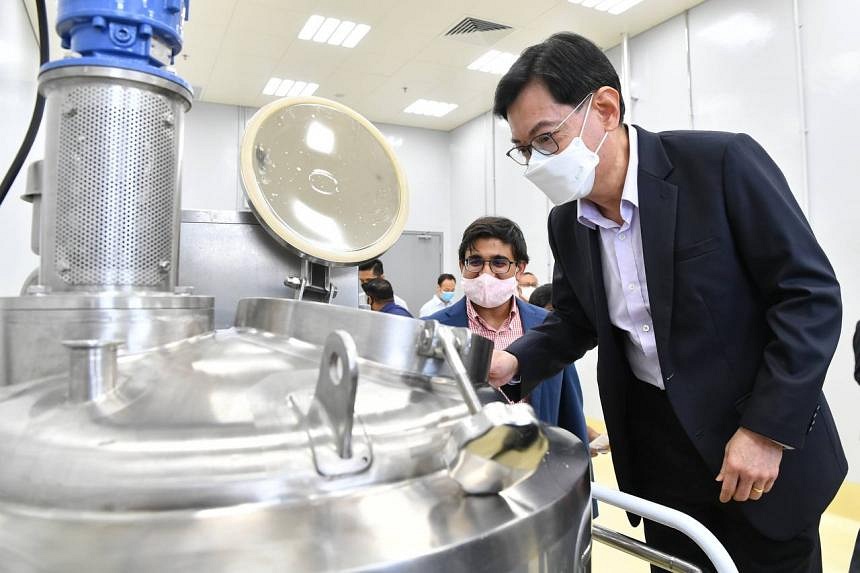SINGAPORE – Local businesses will now be better equipped to innovate and develop food products, with the launch of a new $13 million shared facility for small-batch food production.
The 1,107 sq m FoodPlant facility at Senoko Drive operates on a pay-as-you-go basis, allowing companies to test products in small batches without huge upfront capital outlay.
It is expected to benefit at least 200 food manufacturers and support the development of at least 400 new food products by 2026.
It was jointly launched by the Singapore Institute of Technology (SIT), Enterprise Singapore (Enterprise SG) and JTC Corporation on Friday, April 22, and will help drive Singapore’s food innovation scene forward.
Companies will be able to use the equipment on site, hire research and development consultancy services, as well as attend training and development courses in food innovation.
Food products produced in the plant can be sold commercially, as FoodPlant is licensed by the Singapore Food Agency.
Companies will be able to test new products in small batches and sell them to consumers to test the market. This means companies can get feedback on their products at an early stage, which improves the product development process.
The launch of the facility, attended by Deputy Prime Minister Heng Swee Keat and New Zealand High Commissioner to Singapore Jo Tyndall, comes about four years after the three organizations signed a memorandum of understanding to put set up the shared facility for small batch production. .
The development of FoodPlant, a subsidiary of SIT, has been delayed in part due to the Covid-19 pandemic. Enterprise SG provided financial support for the installation.
In his remarks at the opening ceremony, Heng described Singapore’s food security efforts, including making food research and development a key part of the country’s research efforts.
At the same time, commercialization is key and a network of shared facilities will help companies get to market faster as it mitigates the typically prohibitive cost of food innovation, he said.
Heng, who is also the minister in charge of economic policy coordination, urged more companies to use FoodPlant to advance their capabilities and forge partnerships.
“Singapore, with its high food safety standards and diverse cuisines, is well placed to build on our trusted brand and export our food products to the region and beyond.”
Among the equipment available on site is a twin-screw extruder, which uses high-moisture extrusion technology to texturize vegetable proteins to make meat and seafood alternatives. This technology can be used to make meat-like products with textures resembling those of chicken or fish.
FoodPlant also has an autoclave machine, which provides commercial food sterilization to extend the shelf life of products stored under ambient conditions, and analytical instruments that help companies determine the characteristics of food products to monitor. their quality and safety.






More Stories
🌱 Rail In Roanoke Fifth Anniversary + ‘Love Letters’ Production
Industrial production in South Korea contracts by 1.8% in September
PM Modi lays foundation stone for C-295 transport aircraft production plant